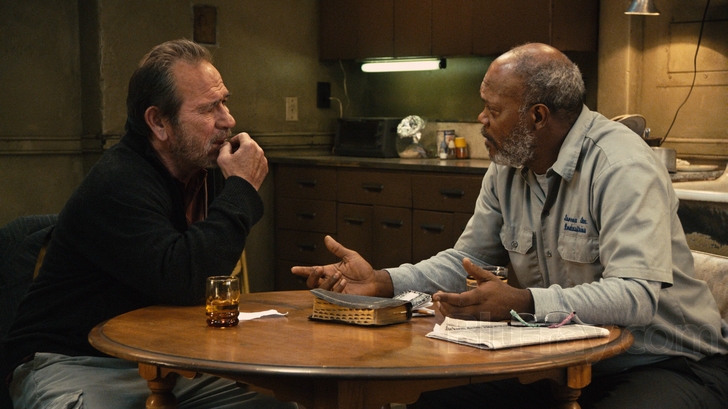
The Philadelphia Story (1940) Directed by George Cukor
Tracy Lord (Katharine Hepburn), Philadelphia uber-socialite, is getting married again. Kitteredge, her soon-to-be next husband, is a social climber and a bit of a pompous ass to boot. Being among the most talked about of Philadephia's upper-crust families, what Tracy does is deemed newsworthy. So the local paper sends a pair of reporters her way, proudly working-class Connor (James Stewart) and his sort of girlfriend Liz. Tracy finds their presence awkward and intrusive, but she can handle that. The real problem is that her ex-husband CK Dexter (Cary Grant) is somehow part of the reporting team, too. And he is up to mischief when it comes to her marrying Kitteredge whom he deeply dislikes. Trouble is supposedly down-to-earth Connor may be falling for Tracy, despite her social standing. Even more complicated, Tracy might be falling for Connor. After a pre-wedding party that lasts all night and gets very twisty turny, Tracy's wedding day arrives. As one might suspect by this point, things don't go as planned.
The Philadelphia Story is an odd mix of social commentary on class, a comedy of manners, and a screwball comedy. While the fun centres on how Dexter and Connor are going to consort to stop Tracy's wedding from taking place, Tracy, herself, is a target, too, representing as she does a very privileged class, one that Connor particularly frowns upon. Of course, regular guy Connor's flaws and prejudices are all exposed, too, so that the critique of class bursts some hot air balloons on both sides. However, it is important to keep in mind that this theme, present though it is, takes a backseat to the rest of the hijinks taking place, The Philadelphia Story is blessed with one of the wittiest scripts in Hollywood history, with All about Eve its only natural rival in my book. It seems the audience is never more than a minute removed from the next zinger, many of which are very well aimed and superbly delivered. It helps that three of the biggest stars in Hollywood history, Hepburn, Grant and Stewart, are in fine form and fully invested in their roles. None of these actors are comedians, but their comic timing, verbally and physically (Hepburn reacting to morning sunlight like a startled vampire, for instance) is beyond impeccable. All of them find just the right balance between likable and insufferable and between serious and silly. Still the movie belongs to Hepburn, and the other characters revolve around her like planets around a sun. She is beautifully photographed which helps. But it is her ability to bring depth to her breezy socialite that really matters here. By the end, questions of class aside, we can see why men are willing to do crazy things on Tracy's behalf. It's a luminous performance and the movie would not have a chance of working without it.
While it must be said that the movie doesn't wear well in its approach to gender issues, it can hardly be faulted for projecting the mores of its time. A lot of people, my daughters to name two, stay away from black-and-white movies of the '30s, '40s, and '50s. Movie goers younger than 50 seem in general to avoid these decades of Hollywood film almost entirely. The eras are too remote, too irrelevant, too besmirched with dated values and attitudes, just too distant and "other" to be concerned with. But people are missing some of the greatest movies ever made when they ignore classic Hollywood films. Especially in term of comedy, there is no shortage of brilliant writing to be found---The Philadelphia Story; All about Eve; Bringing Up Baby; It Happened One Night; The Trouble in Paradise; The Awful Truth; and so on. Especially when compared with the contemporary product, it seems a shame that a sizable chunk of the film audience hasn't the taste or the attention span or the ability to suspend disbelief for these movies. The problems some vintage films face are made infinitely more complicated by the nature of comedy itself. There is simply no accounting for what makes one person laugh while another person doesn't even crack a smile. Invariably a writer's critical judgement is deeply influenced by what makes him or her laugh. This never seems to be a problem with tragedy in that we pretty much have collective agreement on what constitutes a tragedy. But all bets are off when it comes to humour. Still I wish people would check out The Philadelphia Story and other great movies of similar vintage. I mean, really, for viewers sticking to the contemporary comedies coming out of Hollywood, what in the world do you have to lose?





